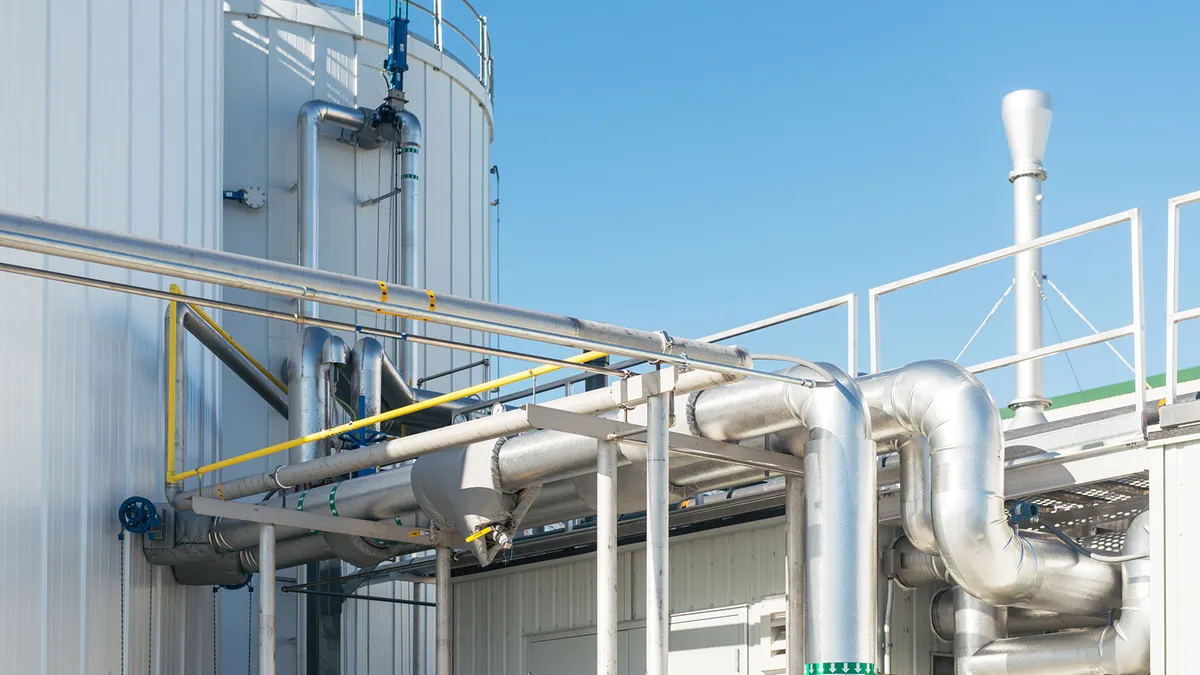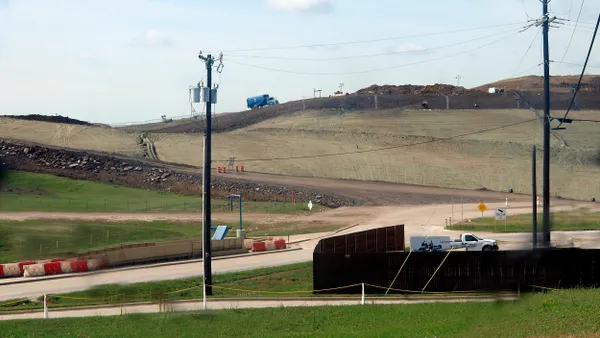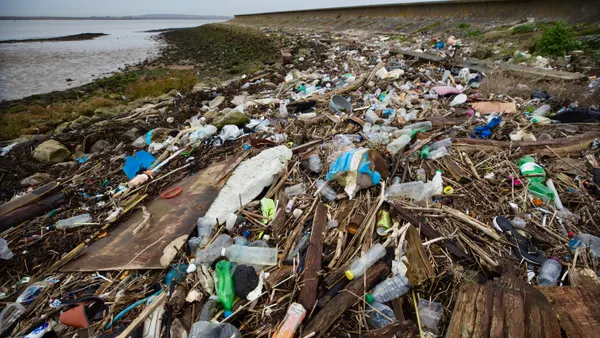Dive Brief:
- The Internal Revenue Service finalized language on Wednesday for several investment tax credits for clean energy, including biogas. The updated language is more favorable to renewable natural gas projects that refine biogas from landfills or organic waste than an earlier draft, according to industry groups.
- Proposed language for the credit released in November 2023 drew criticism from industry voices over wording that appeared to exclude certain portions of facilities that upgrade biogas into RNG. Groups like the American Biogas Council and Coalition for Renewable Natural Gas spoke out against the draft rule.
- The final update is “good news” for RNG developers, the American Biogas Council said in a press release. RNG developers that began projects this year are expected to apply for the credit.
Dive Insight:
The updated Section 48 Investment Tax Credits were spurred by the Inflation Reduction Act, which passed in 2022. In addition to credits for biogas, the package also included credits for hydrogen storage and offshore wind, among other kinds of clean energy projects.
“We thank the Treasury Department for creating sensible rules that reflect the realities of how biogas systems are built,” Patrick Serfass, executive director of the American Biogas Council, said in a statement. “These rules will give biogas developers certainty on the eligibility of their project investments for tax credits available to clean energy projects.”
The new language considers equipment that refines raw biogas into pipeline-quality natural gas “integral” to projects, which it previously did not do. That simplifies the credit for typical RNG projects in the waste sector. Under clarified language, if a landfill’s gas collection system is owned by one company but its RNG upgrading facility is owned by another company — a common arrangement in the space — the RNG facility developer would receive the tax credit.
RNG developers have a narrow window to claim the credit — projects must begin construction prior to the end of calendar year 2024. The meaning of “begin” is somewhat flexible in this regard. In some cases, developers can have ordered equipment for a facility or spent 5% of the total development cost this year in order to qualify, said Lauren Collins, an attorney with Vinson & Elkins specializing in tax law for renewable energy projects.
Some project developers have already begun construction on the hope that the credit would come through. But the late date of the finalization means developers are now expected to race to start additional projects before the end of the year.
“It's a real issue,” Collins said. “I have clients today who are like, 'I need to begin construction, how are we going to do that in three weeks?'”











